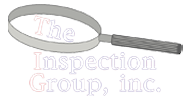In the realm of public housing management, fostering effective communication with tenants is not just beneficial—it’s essential. Open lines of communication can significantly enhance tenant satisfaction, streamline operations, and cultivate a sense of community. For Public Housing Authorities (PHAs), this means adopting a proactive and strategic approach to communication that not only addresses concerns and feedback but also builds trust and engagement among residents. Here are some best practices for PHAs to maintain effective tenant communication strategies with their tenants.
Tenant Communication Strategies
1. Establish Multiple Communication Channels
In today’s digital age, relying solely on traditional communication methods like notices and meetings may not suffice. PHAs should diversify their communication channels to include:
- Digital Platforms: Email, social media, and dedicated tenant portals can provide instant updates and facilitate two-way communication.
- SMS Alerts: Text messages for urgent notifications can ensure that important information reaches tenants promptly.
- Community Meetings: Regularly scheduled meetings offer a personal touch and foster a sense of belonging among residents.
- Physical Notices: For critical information, physical notices in common areas or direct mail to units can be effective.
2. Implement a Feedback System
Encouraging feedback not only helps in addressing tenant concerns but also in improving services. PHAs can:
- Surveys: Conduct regular surveys to gauge tenant satisfaction and gather suggestions for improvements.
- Suggestion Boxes: Placed in common areas, these can provide an anonymous way for tenants to voice their concerns or ideas.
- Online Feedback Forms: Accessible through tenant portals, these forms can make it easier for tenants to communicate issues directly to the management.
3. Transparent and Timely Communication
Transparency is key to building trust. PHAs should ensure that:
- Proactive Updates: Keep tenants informed about upcoming maintenance, policy changes, and community events in advance.
- Clear Policies: Ensure that all housing policies, procedures, and tenant rights are clearly communicated and easily accessible.
- Emergency Communication: Have a clear and practiced plan for communicating in emergencies, ensuring tenant safety and compliance.
4. Conflict Resolution and Dispute Management
Disputes are inevitable, but their management can significantly impact tenant relations. PHAs should:
- Mediation Services: Offer mediation services to resolve disputes between tenants or between tenants and management amicably.
- Clear Complaint Process: Establish a straightforward and transparent process for tenants to lodge complaints, ensuring they know what to expect in terms of response times and resolution processes.
5. Cultivating Community Engagement
Engaged communities are happier communities. PHAs can:
- Community Events: Organize events that bring tenants together, fostering a sense of community and belonging.
- Volunteer Opportunities: Encourage tenants to take part in community improvement projects, giving them a stake in their living environment.
- Tenant Boards: Establish tenant advisory boards to involve residents in decision-making processes, enhancing their commitment to the community.
6. Training for Staff
Effective communication starts with well-trained staff. Ensure that all staff members, from management to maintenance, receive training in:
- Customer Service: Equip staff with the skills to handle tenant inquiries and complaints professionally and empathetically.
- Cultural Competency: With diverse tenant populations, understanding cultural sensitivities and communication nuances is crucial.
- Conflict Resolution: Staff should be adept at de-escalating situations and navigating disputes effectively.
Building a Cohesive Community through Communication
For Public Housing Authorities, effective communication with tenants is not just about disseminating information—it’s about building a cohesive, engaged, and satisfied community. By adopting these best practices, PHAs can enhance tenant relations, improve the quality of housing services, and create a positive living environment for all residents. The Inspection Group understands the importance of these strategies and is committed to supporting PHAs in their mission to provide safe, affordable, and pleasant housing.





